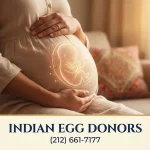Egg donation is an altruistic act that allows people and couples to fulfill their wish to become parents. As much as a deeply rewarding experience emotionally, it’s a lawful medical procedure that maintains the well-being and health of both the donor and recipient. Regardless of the motivations that can make you consent to donate eggs for money, being informed at each step in advance is paramount before you actually do so.
Here, we will explain the medical process in depth, mention egg donor compensation scales, stress eligibility criteria, and address some of the most common questions about egg donation.
Understanding Egg Donation
Egg donation is a type of fertility treatment where a woman donates her healthy eggs to a woman who cannot conceive using her eggs. The eggs are extracted and fertilized in the laboratory using in vitro fertilization (IVF), and the developed embryos are transferred into the recipient’s uterus.
Eligibility for Egg Donors
Before subjecting yourself to the egg donation process, keep in mind that not everyone can donate eggs. Fertility clinics and agencies are strict during screening to see if donors are physically healthy, genetically healthy, and emotionally healthy.
Standard Egg Donor Criteria:
- Age Span: Donors in the age group between 19 to 30 years are generally accepted by most clinics.
- General Well-being: Good physical health and normal BMI.
- Non-Smoker: Donors must not smoke or have a history of occasional drug use.
- Genetic History: No significant genetic disorders.
- Menstrual Cycle: Regular cycles.
Egg Donor Compensation
Egg donation is another form of economic reward. The typical egg donor compensation in the US usually varies from $5,000 to $10,000 per cycle.
Factors Affecting Compensation:
- Location – More money is earned by clinics that are based in large cities like New York.
- Experience – Some repeat donors are paid more.
- Individual Qualities – Egg donors with individual education levels, physical features, or ethnicities in short demand may be the best paid egg donors.
- Clinic or Agency – Each clinic and agency has its own payment policy
It is important to remember that money is a great thing, but egg donation is actually a medical procedure done for the good of others.
The Medical Process of Egg Donation
Step 1: Initial Application
Prospective donors begin with an application to an agency or a fertility clinic. The application asks for information on personal health, donor family medical history, and lifestyle.
Step 2: Pre-Screening and Medical Testing
Donors are medically screened before acceptance, which can include:
- Physical examination
- Hormone levels and disease determination through blood tests
- Genetic testing
- Psychological examination to confirm emotional preparedness
Step 3: Synchronizing Menstrual Cycles
Upon approval, the donor’s menstrual cycle is synchronized with that of the recipient by using birth control pills or hormone shots. This is done to plan optimal egg retrieval.
Step 4: Ovarian Stimulation
The donor is given a course of 10–14 days’ injections of hormones to encourage the ovaries to produce multiple mature eggs instead of one egg per cycle.
During this phase:
- Donors are repeatedly seen for ultrasounds and blood work.
- Doctors monitor follicular growth closely in order to avoid issues like ovarian hyperstimulation syndrome (OHSS).
Step 5: Egg Retrieval Procedure
Once the eggs are mature, the last “trigger shot” of hormone is given, and egg retrieval is scheduled within 36 hours.
- It is done under sedation.
- A small needle is passed through the vagina wall to extract eggs from the ovaries.
- It takes only 20–30 minutes in the process itself, and all donors can resume normal activity the next day.
Step 6: Post-Retrieval Recovery
Donors usually experience little or no cramping or bloating after retrieval. All of these symptoms will have disappeared in a few days. Physicians usually recommend avoiding heavy exercise for a short period.

Risks and Side Effects of Egg Donation
Donation of eggs is not dangerous, but there can be complications:
- Ovarian Hyperstimulation Syndrome (OHSS) – A rare, but possible, reaction to overproduction of medication.
- Mild discomfort – Brief cramping or bloating post-retrieval.
- Emotional impact – Donors can experience unexpected feelings towards the procedure.
Benefits of Egg Donation
- Helping Others – Making parenthood possible for someone with infertility.
- Financial Compensation – Earning $5,000–$10,000 per donation cycle.
- Health Insights – Being subjected to extensive medical and genetic screenings.
- Personal Gratification – Sensed pride of being involved in a life-changing experience.
Highest Egg Donor Compensation – How to Qualify
Not all get the same. You do not necessarily have to. If you wish to receive the highest egg donor compensation, the following are items that can get you paid more:
- Multiple Donations – More mature donors receive higher compensation.
- Distinct Heritage Roots – Certain intended parents prefer distinct heritage matches.
- Greater Education or Accomplishments – Some recipients prefer donors with accomplishments.
Legal and Ethical Considerations
Donation of eggs is regulated by law to protect all concerned. The donor and recipient enter an agreement prior to commencement that includes:
- Anonymity or identity disclosure
- Compensation terms
- No right for the donor parent
Frequently Asked Questions
Q: How much can I earn as an egg donor?
Ans: Egg donor compensation typically falls between $5,000 and $10,000 per cycle, depending on the location, clinic, and profile of the donor.
Q: Who qualifies for the highest egg donor compensation?
Ans: Donors of less common ethnicities, higher educational backgrounds, or past successful donations are most likely to be paid the most in egg donor compensation.
Q: Can I donate eggs for money more than once?
Ans: Yes, most clinics allow more than one donation cycle, separated by some months, as long as the donor is healthy.
Q: Is egg donation painful?
Ans: The retrieval process is done under sedation and is therefore normally painless. Some donors have reported slight discomfort afterward.
Q: What is the age limit to donate eggs?
Ans: The majority of the programs recruit 19 to 30-year-old donors in order to obtain the best quality eggs.
Conclusion
Egg donation is a controlled medical procedure and takes responsibility, commitment, and sensitivity. From screening to egg retrieval, each phase is strictly monitored in an attempt to safeguard the donors and reap the maximum possible success among recipients.
If you are aged between 19 and 30 and in good health, and considering egg donation for monetary reward, it is important that you go through a legitimate medical expert. Indian Egg Donors offers egg donors full assistance through the process, offering skilled counsel and unbiased information about egg donor compensation, in the true spirit of having a good and secure experience.

Dr. Veera Saghar
As an Egg Donor Coordinator, she plays a critical role in our company. Her background as a medical graduate from ISRA UNIVERSITY in Pakistan provides us with a solid foundation in the medical sciences. She has seven years of clinical experience practicing in the USA. This has given her firsthand experience when collaborating with patients and their families.
She is responsible for managing the process of egg donation from start to finish. We identify and screen potential egg donors.










